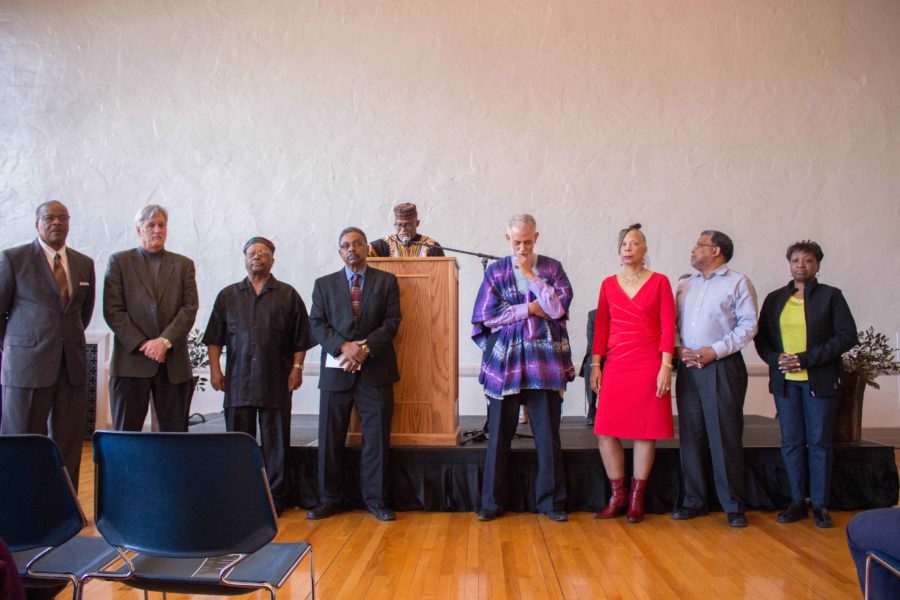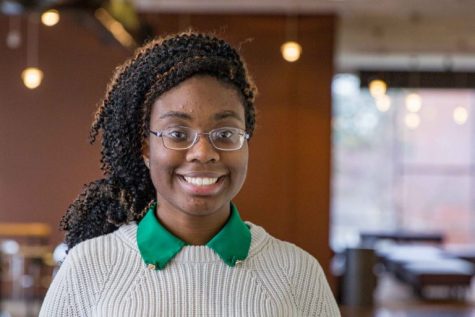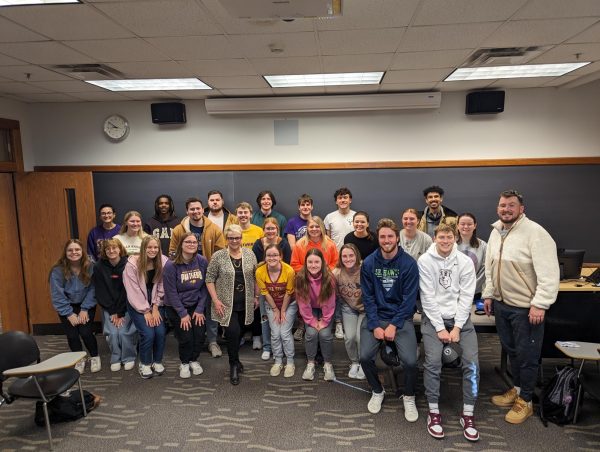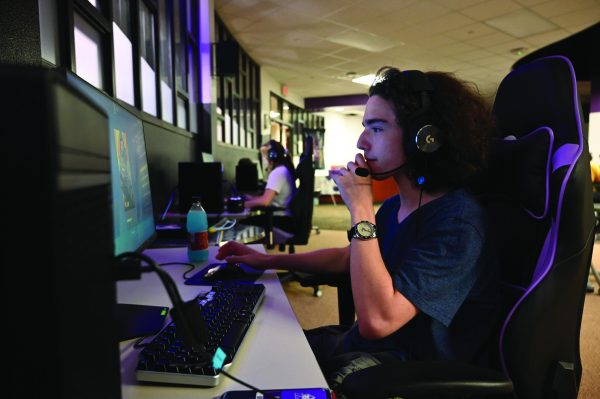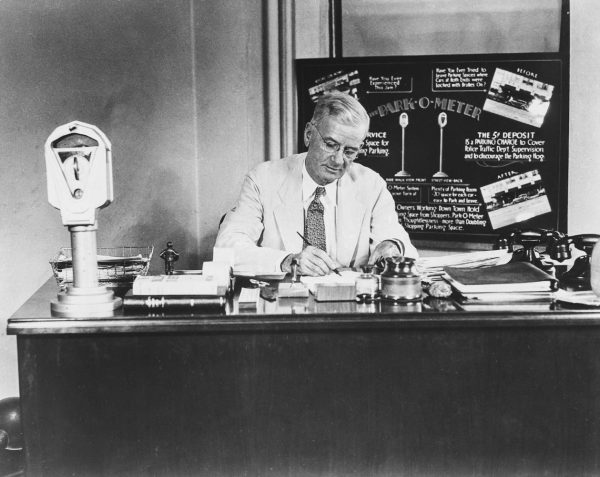Past students activists call for change
Members of the UNI 7 and other students activists from the 1970s returned to campus at the “Brave Student Voices” event, held on April 12.
Apr 18, 2016
The UNI 7 was a group of student activists in the 1970’s who fought for the creation of a black culture house on campus. Because of a staged sit-in, they faced academic probation and some were arrested in subsequent protests.
These students’ efforts to create a black culture house would eventually lead to UNI’s Center for Multicultural Education (CME).
On April 12, several past student activists, including six members of the UNI 7, were brought together with current students through an event dubbed “Brave Student Voices,” held in the UNI Commons Ballroom.
Not all of the UNI 7 members were able to attend, but the ones that did had some strong words for UNI administration about diversity on campus.
Bryon Washington made it clear during his address to the administration that after 46 years, they are still waiting for a black culture house.
The honor ceremony was opened by Celeste Bembry. She introduced all the past student leaders, along with the various accomplishments they had achieved after their days at UNI. They had all gone on to lead active lives in their respective communities.
Chris Shackelford, research and programming assistant at the Sullivan Brothers Iowa Veterans Museum, provided the historical context for the UNI 7 and the contention within the student body during the Maucker years. He said that, in the wake of the Kent State shootings, the UNI 7 and other activists were dealt with too harshly.
“Just hearing what happened and that they all got academic probation was just ridiculous,” said Samantha Steffensmeier, sophomore leisure, youth and human services major. “That is so not fair, and, you know what, I really hundred percent go for the house idea.”
Washington compared the creation of the CME with Greek life on campus. Since they wouldn’t put all the sororities and fraternities in the same house, why would they do the same with the CME?
“We would not have risked our academic futures for the establishment of a CME,” Washington said.
The two following speakers from the 1970’s activists similarly expressed discontent with the way the university has been run in their absence. Terry Stevens, in particular, directly criticized the actions UNI has taken following their time, saying that little progress has been made.
“The UNI 7, they were really insightful,” Camacho said. “He [Bryd] was really good. The story that he gave us helped me realize something without him actually being direct about it.”
Mayra Rocha, senior family services major, gave a statement on behalf of the current student activists urging the administration to continue looking to make progress.
“I believe that it’s going to show other students that we do have voices and…the university does want to hear them, and it’s up to us to continue this kind of movement,” Rocha said.
Hansen Brietling, senior philosophy major and NISG director of diversity and student life, also gave an impromptu speech thanking the UNI 7 and other past activists for their example.
After the event, UNI Provost Jim Wohlpart described the event as, “from my perspective, devastating.
“I firmly believe that if we’re going to make changes which we desperately need to do, we have to look hard at ourselves,” Wohlpart said. “That includes looking at out past, where we come from, looking where we are now, so that we can imagine a better future. This event really is a launching pad…an event that will lay the groundwork that will lead to something else.”


